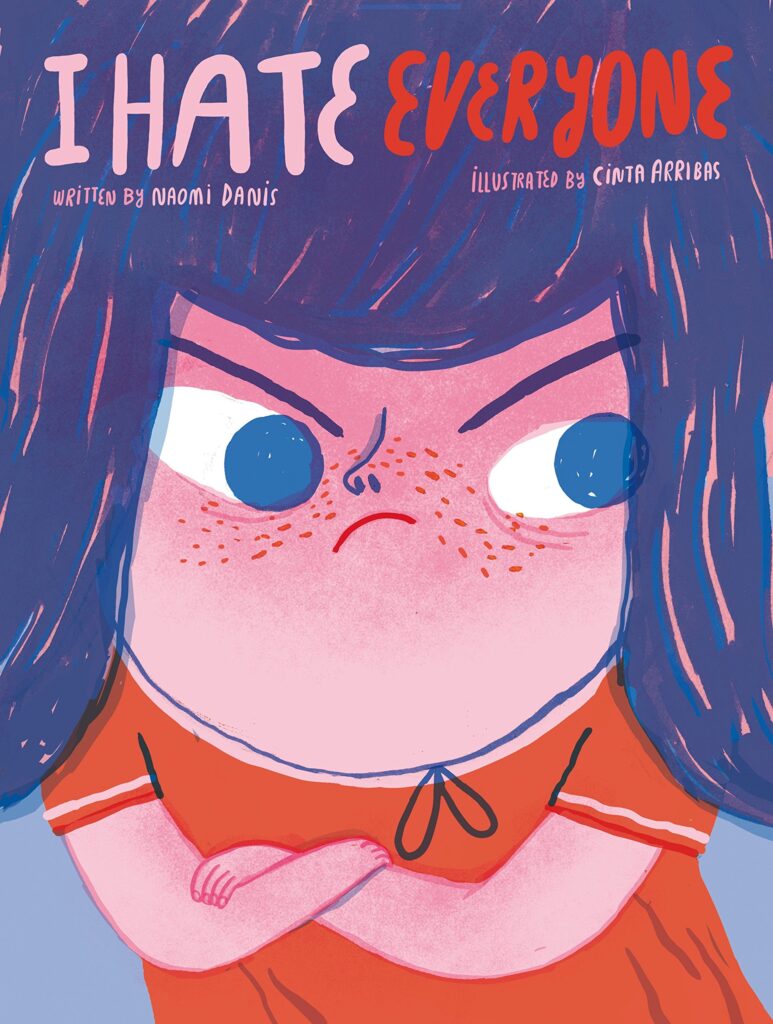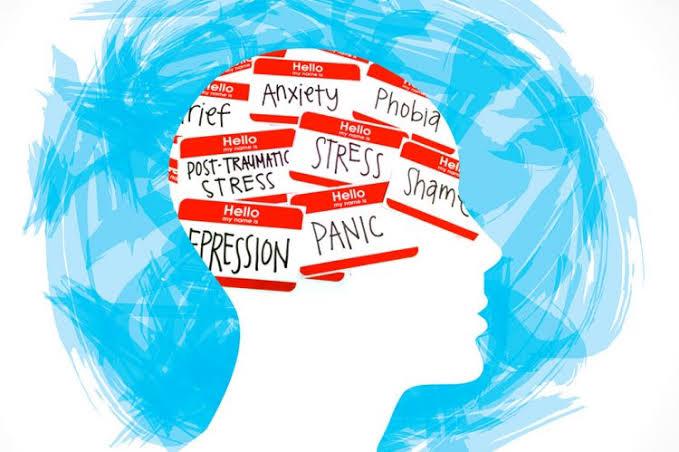
Why Do I Hate Everyone? A Personal Guide to Understanding and Overcoming
Feeling misunderstood or disconnected from others can be a deeply challenging experience. Many individuals commonly experience loneliness since they believe themselves to carry negative feelings singly. Often, this hate towards others is less about them and more about what’s going on inside us.
What really makes a difference is showing self-compassion. This means being kind to yourself when those feelings of anger or frustration rise up. Elaborate self-compassion takes days but one must consistently tell themselves that everyone undergoes tough times. Building a sense of connection with others—whether through sharing your thoughts or seeking therapy—can help you move forward. Therapy along with support from others who truly understand you could represent your path to recovery.
It’s vital to recognize that these feelings aren’t permanent. You can break free from this cycle by treating yourself with care and offering yourself the same understanding and nurturing you would give a close friend. It’s through compassion and connection that you can begin to let go of the hate and move toward emotional balance.
What Does It Mean to Hate Everyone?
Hatred is a powerful and intense emotion that can feel overwhelming. It’s often described as the opposite of love, but its roots are much more complex. Frustration and anger are common precursors to hatred, and these feelings can arise from deep-seated issues, often from past hurt or unmet expectations. These emotions don’t usually come from nowhere; they’re built up over time, often in the form of layers of unresolved feelings and unresolved turmoil.
People sometimes prefer external blame instead of looking at their inner reality. Disdain for others can stem from past experiences where you felt rejected or misunderstood. These feelings may be learned from those who have hurt you in the past, but they can also be unlearned with time and effort. The anger or frustration you feel toward others is usually a defense mechanism, a way to protect yourself from the vulnerability of being hurt again.
It’s important to recognize that this all-encompassing hatred can cloud your judgment and prevent true healing. With patience and effort, it’s possible to turn these feelings into something more productive, opening the door to healing and emotional growth.
Why You Might Feel This Way

1. History of Being Hurt
Betrayal and mistreatment can leave deep emotional scars that are hard to heal. These painful experiences often manifest in feelings of animosity toward others. It’s difficult to trust people when your sense of humanity has been challenged by abuse or betrayal. The way people treat you, especially in vulnerable moments, can erode your ability to believe in the goodness of others, making mistrust feel like a natural response. We should avoid hating others for no reason.
Life’s emotional scars need ongoing intentional work to heal. Over time, they build up and can erode your confidence in the world around you. The anger and frustration that come from being hurt can turn into a powerful form of animosity, making it seem like everyone is a potential threat. Remarkably accumulating past trauma distorts present reality so you continue to view situations through the distorted perspective of wounded memories. These experiences aren’t just isolated moments in your life—they shape the way you see and interact with the world.
2. Stress and Overwhelm
When you’re feeling stressed and emotionally overwhelmed, it’s easy for minor annoyances to suddenly trigger disproportionate reactions. A simple inconvenience might seem like the last straw, sending you into anger or even hatred toward others.
Unfortunately, this emotional cycle can feel like a never-ending loop, where anger and hatred continue to grow as stress builds. Identifying the triggers and learning to manage your stress is key to breaking this cycle. Through effective stress management you can begin to experience relief and develop a negative-awareness of your environment.
3. Introverted Tendencies
As an introvert, social interaction can be incredibly draining. You may find yourself overwhelmed by excessive social situations that require constant engagement. It’s not that you don’t want to connect with others, but after a while, it can feel like your energy is being drained, leaving you frustrated and resenting the idea of socializing. The constant need for interaction can be so intense that it starts disrupting your peace, leading to a desire to retreat into solitude.
4. Social Anxiety
For many, the fear of judgment can be overwhelming, especially in social situations. Your nervousness mounts because it appears to you that everything you say and do is being picked apart. This feeling of awkwardness can create a self-reinforcing loop where you constantly avoid people, fearing that you’ll be misunderstood or criticized. The more you pull away, the more resentment grows, not just towards others but towards yourself for not being able to break free from these feelings.
It’s easy to see how resentment can slowly build up when the fear of judgment makes every interaction feel like a test. Starting with minor inner discomfort the emotional response strengthens until you lose your ability to relate with and comprehend other people.
5. Differing Beliefs
When clashing values arise between you and others, it can feel like mentality takes over. Whether it’s political, religious, or cultural, these differences often create a deep sense of disconnected feelings, making it harder to relate to others. Anger can easily build up when you feel like your worldview is constantly challenged or dismissed.
This challenge of navigating differing beliefs can lead to frustration. It proves challenging to understand someone who harbors opposite viewpoints and eventually these emotional frustrations become resentful and hateful feelings over time.
6. Feelings of Inferiority
When struggling with low self-esteem, it’s easy to feel less-than others, and this feeling often projects outward, affecting how you interact with people. It’s as if everything you do is measured against others, and often, that comparison leads to feelings of inadequacy. This view of yourself as being inferior to others can make it hard to relate or even trust people around you.
Sometimes, these emotions manifest as a defense mechanism, where you may dismiss people or situations altogether to protect yourself from perceived threats. Hiding your insecurities causes resentment and anger to intensify until you feel misunderstood by others and judged for your actions.
7. Trauma
Trauma creates significant modifications to our perspectives about the world along with our social connection behaviors. Past experiences of betrayal, bullying, or abandonment can leave lasting emotional scars.
The emotional pain of rejection and insecurity can make us feel isolated, as if everyone will eventually hurt us. This leads to a cycle where bitterness and resentment take root. We make assumptions about others’ intentions, even when there’s no reason to believe they will let us down.
8. Echo Chambers
In today’s world, echo chambers are everywhere. Echo chambers function as spaces which offer only information which matches our existing beliefs so we think we share an opinion club with others. This constant exposure to polarized opinions can lead to a confirmation bias, where we only seek out information that aligns with our negative beliefs. Our comfortable echo chambers permit us to isolate ourselves so we don’t need to deal with alternative views or dissimilar ideas of others.
The Hidden Costs of Hatred

1. Mental Health Impacts
In today’s world, echo chambers are everywhere. Echo chambers function as spaces which offer only information which matches our existing beliefs so we think we share an opinion club with others. This constant exposure to polarized opinions can lead to a confirmation bias, where we only seek out information that aligns with our negative beliefs.
However, this leads to division and creates an environment full of conflict. It becomes harder to understand others, and disagreement is often viewed as a personal attack. Online interactions can make this worse, as it’s easier to judge and dismiss people with opposing views. This isolation from differing opinions only deepens feelings of hate and further fuels extreme views. hate someone for no reason is not good for our mental health..
.
2. Physical Health Impacts
When we constantly experience chronic feelings of hatred, it triggers a persistent stress response in the body. This stress can lead to inflammation, causing both mental and physical health issues. The constant emotional turmoil drains our energy, leading to exhaustion. Hate also effect our physical health.
This cycle of negativity and emotional imbalance can take a toll on the body, leading to chronic fatigue and avoidance of activities that promote self-care. When we fail to take care of ourselves we create barriers to our ability to treat wounds and grow into the future. When we neglect our health, the stress only continues to build, further disrupting our mental health and adding more strain on our physical health.
Steps to Overcome These Feelings
Step 1: Identify the Root Cause
When we constantly experience chronic feelings of hatred, it triggers a persistent stress response in the body. This stress can lead to inflammation, causing both mental and physical health issues. The constant emotional turmoil drains our energy, leading to exhaustion.
This cycle of negativity and emotional imbalance can take a toll on the body, leading to chronic fatigue and avoidance of activities that promote self-care. When we fail to take care of ourselves we create barriers to our ability to treat wounds and grow into the future.
Step 2: Challenge Cognitive Distortions
We need to confront the cognitive distortions which affect our response to hateful emotions. All-or-nothing thinking can lead us to believe that people are either inherently bad or good, making us view any disagreement as a personal attack. This thinking style often causes us to overgeneralize situations and assume the worst about others, leading to hurt and resentment.
.Step 3: Practice Empathy and Mindfulness
One powerful way to combat feelings of hatred is by practicing empathy and mindfulness. When we take the time to understand others’ perspectives, we may not always agree with them, but we can soften the resentment we feel. Mindfulness helps us focus on what’s happening right now, rather than being consumed by negative thoughts. It allows us to build self-awareness and encourages compassion toward ourselves and others. By using techniques like perspective-taking, we can shift our views and engage in emotional regulation, which helps us respond with acceptance rather than anger.
Step 4: Prioritize Self-Care
When dealing with feelings of hatred towards others, it’s important to prioritize self-care. Taking care of yourself, both physically and mentally, can be a transformative experience. Engaging in regular exercise helps release built-up tension, while indulging in hobbies can offer a much-needed escape from negative thoughts. Proper sleep is essential, as it directly impacts your mental health and overall well-being.
Incorporating practices like personal care, relaxation, and stress relief into your routine can significantly improve your emotional well-being. When you invest time to care for yourself you gain the tools needed to manage daily challenges while avoiding experiences of emotional exhaustion that fuel resentment.
Step 5: Expand Your Circle
When you’re feeling like you hate everybody, it’s helpful to seek out people who align with your values and interests. Connecting with others who share your passions through shared activities can help foster connection and ease feelings of isolation. Entering new connections within your network will increase your chances to establish connections that provide a feeling of belonging.
Spending time with like-minded individuals who offer social support and create interpersonal relationships can help you reduce negative emotions.
Step 6: Learn to Forgive
Learning forgiveness provides an effective solution to your feelings of hating everyone. Forgiveness isn’t about condoning bad behavior, but rather about freeing yourself from the burden of resentment. Holding onto anger only keeps you tied to negative emotions, so forgiving others can help you let go and begin the process of healing.
Start small by forgiving minor offenses, and you’ll gradually build your capacity for emotional release. With each act of letting go, you take off some of the emotional weight you’ve been carrying, which allows you to experience peace.
Step 7: Seek Professional Help
Sometimes, the feelings of hatred can become overwhelming and tough to tackle on your own. Supportively you can handle this challenge without personal isolation. Therapists can provide you with the right tools to help reshape your thought patterns and improve your emotional regulation. With their help, you can begin to heal from past traumas and work towards better mental health.
Through therapy, you can develop effective coping strategies and gain support in your journey of emotional healing. Professional guidance can lead to significant personal growth, as it offers a space for psychological help and encourages long-term emotional healing. When you have the right support, it becomes easier to face your emotions and find peace.
https://www.verywellmind.com/i-hate-everyone-why-you-feel-this-way-and-what-to-do-5204131
https://thriveworks.com/help-with/feelings-emotions/i-hate-people/
https://depthofthoughts.site/wp-admin/post.php?post=2546&action=edit
